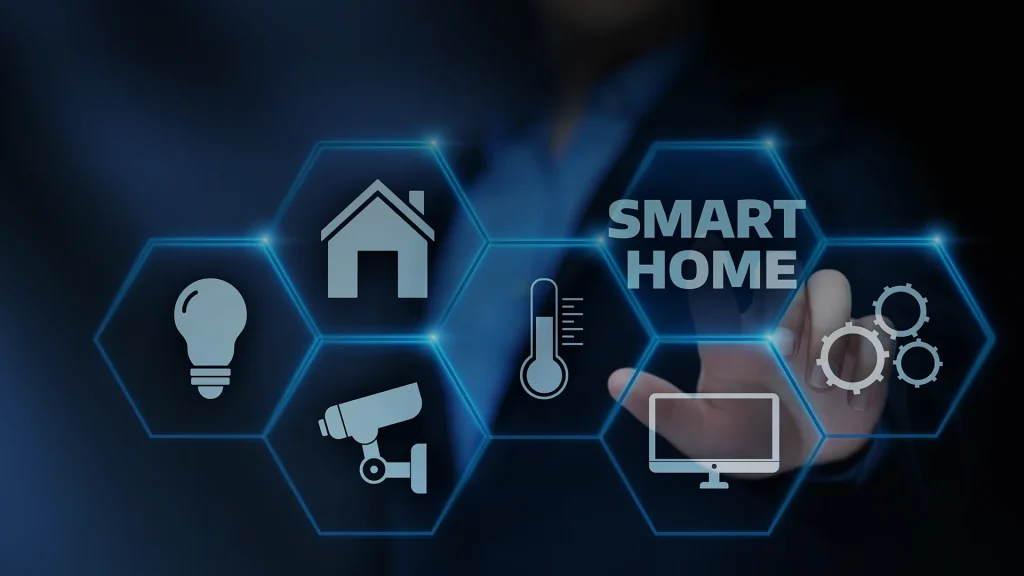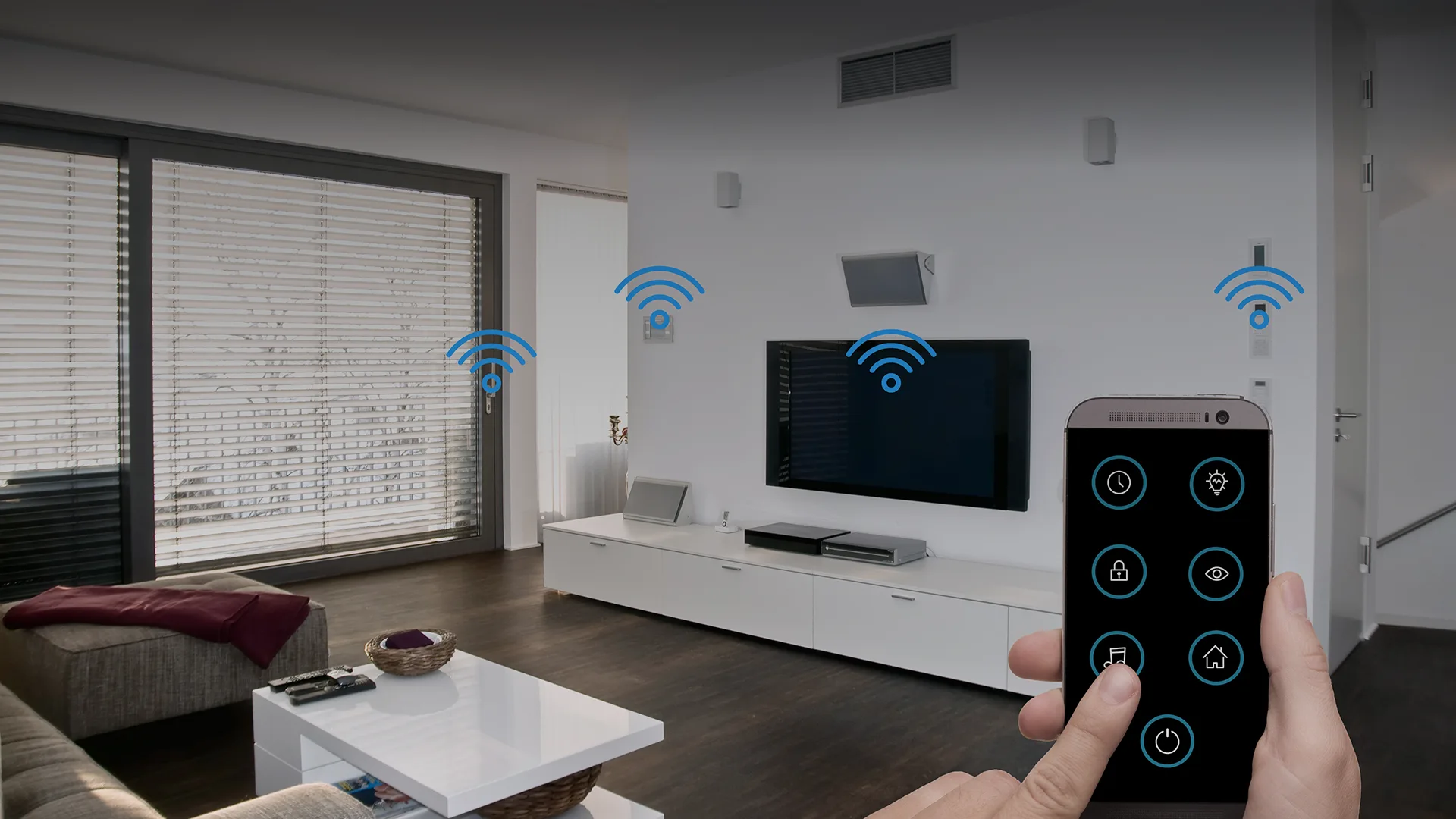Introduction to Smart Home Technologies
Smart Home is cooperation of technology and services through a network and the internet of things (IOT) for better quality of living.
A smart home allows the entire home to be automated and therefore provide ease and convenience to everyday activities in the home.
This technology is used to make all electronic devices to act ‘smart’.
In the near future almost all the electronic devices will take advantage of this technology through home networks and the internet.
Smart home technology is currently being implemented for entire house in particularly kitchen and living room, …. Basically, smart home facilitates users with security, comfortable living and energy management features as well as added benefits for disabled individuals.

Introduction to Smart Home Technologies
Smart Home is cooperation of technology and services through a network and the internet of things (IOT) for better quality of living.
A smart home allows the entire home to be automated and therefore provide ease and convenience to everyday activities in the home.
This technology is used to make all electronic devices to act ‘smart’.
In the near future almost all the electronic devices will take advantage of this technology through home networks and the internet.
Smart home technology is currently being implemented for entire house in particularly kitchen and living room, …. Basically, smart home facilitates users with security, comfortable living and energy management features as well as added benefits for disabled individuals.
What can you control in a smart home?
Obtain the ability to manage your home below Smart Home from where ever you are in the world:
1-Interior and exterior lighting system.
2-Cameras.
3-Security Systems & Access Control.
4- electrical devices of Home Theater & electrical entertainment devices.
5-Phone Systems.
7-Irrigation.
8-Air conditioner system.
9-Control all smart home electrical equipment and appliances with mobile App and keypad
ADVANTAGES OF SMART HOME
- Managing all of your home devices from one place.
- Flexibility for new devices and appliances.
- Maximizing home security.
- Remote control of home functions.
- Increased energy efficiency.
- Improved appliance functionality.
- Home management insights.

The main home automation protocols:
– KNX. (Hardwire Technology):
KNX is designed to be independent of any particular hardware platform.
A KNX Device Network can be controlled by anything from an 8-bit microcontroller to a PC, according to
the needs of a particular implementation, the most common form of installation is over twisted pair medium.
– C-Bus system. (Hardwire and wireless Technology):
The C-Bus System can be used to control lighting and other electrical systems and
products automatically or via remote control and can also be interfaced to a home security
system, AV products or other electrical items.
The C-Bus system is available in a wired version and a wireless version, with a gateway available to allow
messages to be sent between wired and wireless networks
– ZigBee. (Wi-fi Technology):
ZigBee is an IEEE 802.15.4 based specification for a suite of high-level communication protocols used to
create personal area networks with small, low power digital radios, such as for home automation,
medical device data collection, and other low power low bandwidth needs, designed for small scale
projects which need wireless connection. Hence, Zigbee is a low power, low data rate, and close
proximity (i.e., personal area) wireless ad hoc network ZigBee
– Zwave (Wi-fi Technology):
Zwave wireless communications protocol used primarily for home automation, it is a mesh network
using low energy radio waves to communicate from appliance to appliance allowing for wireless control
of residential appliances and other devices, such as lighting control, security systems, thermostats,
windows, locks, swimming pools and garage door openers.
Like other protocols and systems aimed at the home and office automation market, a Zwave
automation system can be controlled via the Internet from a wireless keyfob, a wall mounted
Home automation base on IOT:
The Internet of Things (IoT) conceptualizes the idea of remotely connecting and monitoring real
world objects through the Internet when it comes to our house, this concept can be aptly incorporated
to make it smarter, safer and automated This IoT project focuses on building a smart wireless home
security system which sends alerts to the owner by using Internet in case of any trespass and raises an
alarm optionally Besides, the same can also be utilized for home automation by making use of the
same set of sensors.
Echo Alexa Devices
In the home automation space, Alexa can interact with devices from Belkin WeMo, Eco bee, Geeni,
IFTTT, Insteon, LIFX, LightwaveRF, Nest Thermostats, Philips Hue, SmartThings, Wink, and
Yonomi, The Home Automation feature was launched on April 8 2015
Future of the home automation:
Home automation has been segmented on the basis of application into entertainment in the
form of home video and audio, HVAC or heating, ventilation, and air conditioning, security and
safety, lighting, robotics, and healthcare, among others.
In the near future smart home system will become as common as the internet today,
Otherwise, it will be outdated just like the home today without the internet.
